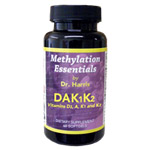
June 10, 2024 Puzzle Piece
Magnesium and Cardiovascular Health.
· Dr Marc Harris says the most important items we need to live are 1. Air, 2. Water and 3. Magnesium
· Magnesium is important to the heath of every cell and organ, playing a role in over 600 different reactions in your body.
· Research
demonstrates the vital role magnesium plays in your cardiovascular
health, reducing your risk for hypertension, stroke, heart attack and
coronary artery calcification.
· Your
body loses magnesium with sweating, certain drugs and when you are
insulin-resistant; improve your levels through good dietary choices or
taking a supplement balanced with vitamin K2, vitamin D3 and calcium.
Magnesium is a mineral important to the health of every cell and organ
in your body, especially your heart, kidneys, and muscles. Symptoms of a
deficiency can include unexplained fatigue or muscle weakness, abnormal
heart rhythms, eye twitches and muscle spasms.
Determining a deficiency of magnesium from a simple blood sample isn't
possible, as only 1% of the magnesium in your body is found in your
blood stream. Instead, most of your magnesium will be found stored in
your bones and organs.
It is quite possible to be unaware of a deficiency, which is why it has
been dubbed the "invisible deficiency." Researchers estimate that up to
75% of Americans do not get enough magnesium from their diet to replace
the magnesium lost.
Studies have also demonstrated that only 25% of U.S. adults are getting
the recommended daily amount of 310 to 320 milligrams (mg) for women and
400 to 420 mg for men.2 Even more concerning to your overall
health, these amounts are just enough to stop your body from
experiencing the overt symptoms of a deficiency, but not enough to
support optimal health.
Adequate Levels of Magnesium Linked to Improved Heart Health
In one study, researchers conducted a dose-response meta-analysis of
over 40 studies with over 1 million participants, published between 1999
and 2016,3 looking for a correlation between magnesium intake and diabetes, cardiovascular disease (CVD) and all-cause mortality.
They found no significant association between increasing the intake of
magnesium above 100 mg per day and the risk of CVD or congestive heart
disease (CHD).
However, the same increase in magnesium intake per day was linked with a
22% reduction in the potential risk of heart failure and a 7% decrease
in the risk of stroke. The increase in magnesium was also linked to a
10% drop in the risk of death from all causes and a 19% drop in the
potential risk of diabetes.
While the analysis was based on observational studies and did not prove a
direct link, researchers wrote that the results of their meta-analysis
supported the theory that increasing your daily dietary intake of
magnesium may provide you with overall health benefits. A
deficiency of magnesium at the cellular level can lead to a
deterioration of metabolic and mitochondrial function at the cell level,
and lead to more serious health problems.
Cardiovascular Health Has a Significant Public Health Impact
Cardiovascular diseases claim more lives than all forms of cancer
combined. In the U.S., someone has a heart attack every 40 seconds and
someone dies every 33 seconds from a cardiovascular disease.
I take Essential Magnesium every day along with DAK1K2.

 Yours in Health and Wellness,
Yours in Health and Wellness,
John W Brimhall, DC, BA, BS, FIAMA, DIBAK, Formulator, Patent Holder
(Only registered customers can rate)
There are no comments for this product.